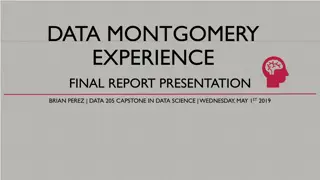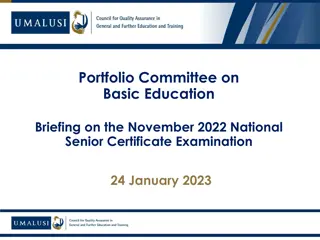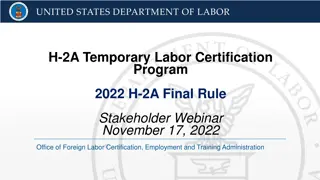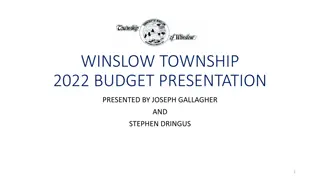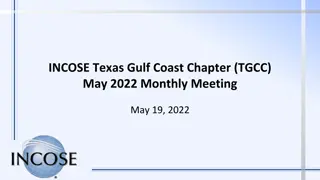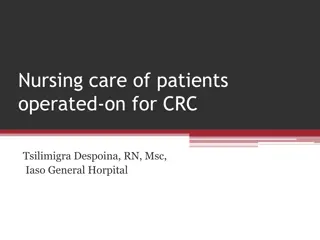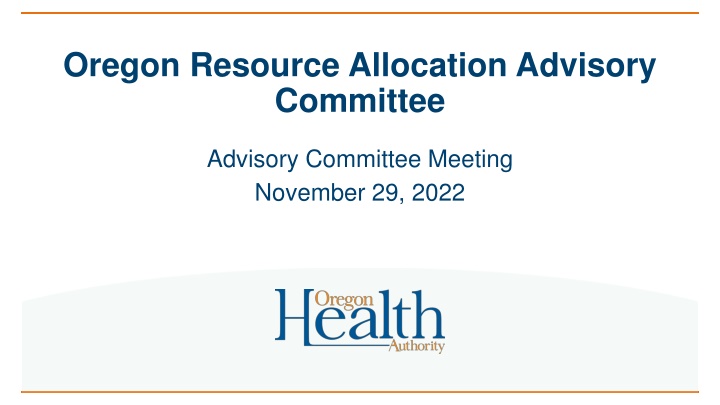
Oregon Resource Allocation Advisory Committee Meeting - November 29, 2022
"Join the Oregon Resource Allocation Advisory Committee Meeting on November 29, 2022, to discuss health policy, triage concepts, and engage with working agreements. Public participation welcome."
Download Presentation

Please find below an Image/Link to download the presentation.
The content on the website is provided AS IS for your information and personal use only. It may not be sold, licensed, or shared on other websites without obtaining consent from the author. If you encounter any issues during the download, it is possible that the publisher has removed the file from their server.
You are allowed to download the files provided on this website for personal or commercial use, subject to the condition that they are used lawfully. All files are the property of their respective owners.
The content on the website is provided AS IS for your information and personal use only. It may not be sold, licensed, or shared on other websites without obtaining consent from the author.
E N D
Presentation Transcript
Oregon Resource Allocation Advisory Committee Advisory Committee Meeting November 29, 2022 HEALTH POLICY AND ANALYTICS DIVISION
Interpretation Click the globe to enable interpretation options. Select the language. You can choose to hear the original audio at a lower volume or select mute original audio to stop hearing the original audio.
Meeting Resources If you need support, we have: Simultaneous Spanish language interpretation Technology support Note taker If you have a need, contact Lisa Bui at: 503-576-9321 Please note that this meeting will be open to the PUBLIC 1. The general public may be in attendance 2. The meeting summary will be posted to OHA s website 3 3 3 3 3 3
This Content May Be Difficult If today s content is difficult for you, please take the steps you need to care for yourself. This might include: Turning off your video Stepping away from the meeting Contacting Trey Doty at Responder Life during or after the meeting for individual support: 503.320.8775 trey.doty@responderlife.org 4 4 4 4 4
Purpose Finalize introduction to triage concepts in order to launch subcommittee work. 5 5 5 5 5 5
Agenda 1. Welcome 2. Public Comment 3. Review and Reflections from October Meeting 4. We are Oceania: Oregon s Pacific Islander Community System 5. Break 6. Triage Teams 7. Subcommittee Q&A Total 120 minutes (2 hours) 6 6 6 6 6 6
Working Agreements 1. Keep the patients and communities who have been marginalized by mainstream institutions, like the healthcare system, at the center of the discussion 2. Be mindful of paternalism in discussions about elders, people with disabilities, and BIPOC communities 3. Acknowledge the importance of all the services, supports, systems, and perspectives that are present in this committee 4. Be cognizant of how you speak and what you say so we can all understand one another 5. Recognize that participation and engagement looks different for everyone 6. Keep an open mind and come with a willingness to learn and to share 7. Move in the spirit of trust and love 8. Be clear in your communication 7 7 7 7 7 7
Triage in Crisis Care Guidelines For our purposes: triage refers to the prioritization process to determine which patient(s) will receive life-saving resources when there are not enough for everyone who needs them Ideal Properties: Advances health equity Mitigates bias Validated and reliable Can be operationalized, ideally across a range of emergencies/disasters/settings 10 10 10 10 10
Triage Tools: current status Evidence for structural discrimination in existing tools Risk for bias Development often lacks involvement of community Limited experience operationalizing emerging approaches Limited research on emerging approaches, unknown impact Health equity and non-discrimination principles must remain core to our work 11 11 11 11 11
Approaches to Prioritization in Crisis Care Triage Survivability: save the most lives Health justice: reduce or eliminate health inequities Prioritize by exposure: e.g., essential workers Random allocation: prioritization is random ; a lottery system Use modifications, a combination of the above, other 12 12 12 12 12
Health Equity Oregon will have established a health system that creates health equity when all people can reach their full potential and well-being and are not disadvantaged by their race, ethnicity, language, disability, age, gender, gender identity, sexual orientation, social class, intersections among these communities or identities, or other socially determined circumstances. Achieving health equity requires the ongoing collaboration of all regions and sectors of the state, including tribal governments, to address: The equitable distribution and redistribution of resources and power; and Recognizing, reconciling and rectifying historical and contemporary injustices 13 13 13 13 13
Our Work Guiding Principles Non-discrimination Health Equity Patient-informed Decision Making Transparent Communication Community- informed crisis care guidance Challenges Committed to health equity Dominant tools with evidence for structural discrimination Insufficient research Lack of prior community involvement Risk of propagating inequities 14 14 14 14 14
Questions for Jamboard What resonates with you from the approaches that were described? What causes concern? The landscape of research and examples of the equitable distribution of crisis care resources is limited. As we move into future recommendations on triage tools, are there lessons from other sectors that we can pull from into our work? 15 15 15 15 15
We are Oceania: Oregons Pacific Islander Community System 17 17 17 17 17
Triage Teams: Crisis Standards of Care (CSC) A team should be designated by each hospital for implementing critical care resource allocation determinations Triage team should not be providing direct care to patients undergoing triage Recommended to consist of: Two-three senior clinicians with experience in triage (e.g., critical care, emergency medicine, trauma surgery, etc.) A medical ethicist with experience as a healthcare ethics consultant An expert in diversity, equity and inclusion An administrative assistant to record all triage team discussions and maintain records 19 19 19 19 19
Triage Teams Continued To the greatest extent possible, each hospital should have a triage team that: Reflects the diversity of the community and patient population served Has training in implicit bias and antiracism Considerations: Hospital size Staff capacity, training and skillset 20 20 20 20 20
Data Collection In order to retrospectively assess for the potential that this triage prioritization process may exacerbate health inequities and in order to inform future updates, the following data must be collected: Whether the patient was using a personal ventilator/ other personal medical equipment or resources The patient s care preferences, as documented in an advanced directive, portable orders for life-sustaining treatment (POLST), or as communicated by a health care representative, support person, or a family member. Triage prioritization and clinical outcome Patient s medical record number Hospital name and location Date of birth Patient s sexual orientation and gender identity, if known Patient s race, ethnicity, language and disability data (in accordance with REALD requirements Home address, unhoused or unknown 21 21 21 21 21
Subcommittees Email alyshia@alyshiamacaysa.com by Friday, December 2, 2022 if you are interested in serving on the following subcommittees: 1. Triage Approaches OR 2. Triage Teams and Data Collection Review the subcommittee overview document for details on purpose, expectations, and criteria. 23 23 23 23 23
Questions? 24 24 24 24 24



